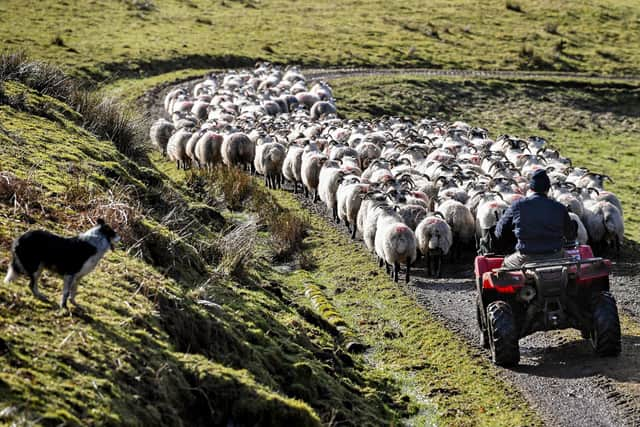Bid to ban meat from Edinburgh University's student union is self-righteous and misguided – Stephen Jardine
The Oxbridge rejects all ate in the dining room where the food was served by waitresses wearing pinafores. It cost more despite being the same menu but I suspect they liked the sense that nanny was still looking after them. Us mere mortals chose the downstairs canteen where baked potatoes with beans were served up at alarming speed.
One day I opted for something different and paid the price for my mistake. Halfway through my beef curry with rice I noticed something that should not have been there. On a large lump of gristle were the words “Produce of Ireland”. I hadn’t expected prime fillet but nor did I particularly want the flabby skin of the animal.
Advertisement
Hide AdAdvertisement
Hide AdIf only Emily Kemp had been there to save me. The student activist has put forward a motion to ban meat and animal products from bars and canteens run by the Edinburgh University Students Association. If it goes ahead, they will switch to a plant-based offering with animal produce including cheese, milk, honey and, presumably, cow skin all off the menu in the next five years. “A plant-based diet is always culturally inclusive, being halal, kosher and nutritionally adequate and revamping the menus would provide an opportunity to better accommodate a wider range of dietary requirements,” said Emily.
Gosh, there is a lot to unpack here. Inclusivity surely means providing equal access to opportunities and resources. Banning things is the exact opposite of that. As for better accommodating dietary requirements, is that even possible? Ask any chef and they will tell you their entire lives these days are spent looking after the people with proper allergies and attention seekers who prefer black to white pepper.
A better argument might be the environmental impact of meat production. Meat accounts for nearly 60 per cent of the greenhouse gases from food production thanks to the release of methane, nitrous oxide and CO2. There’s also the impact on landscape with land and water degradation and biodiversity loss.
However, that needs to be balanced against the cost of a plant-based diet. With plentiful rainfall to grow grass, Scotland’s vast, rugged landscape lends itself to sheep and cattle production in a way it can never be used to grow plants and vegetables. From the gallon of water needed to grow a single almond to the high carbon dioxide output of the mushrooms used in many vegan recipes, everything has an impact in some way and that’s before we get onto avocados.
That’s why a balanced diet of less meat and more fish, fruit and vegetables seasonally produced here is by far the best option for the health of the people and the planet. However, that is a bit dull and doesn’t sound nearly progressive enough, which is why students in Edinburgh and Stirling are choosing a more self-righteous path.


I predict this will go down well with the converted. Meanwhile, the vast majority who want to choose what they eat without an additional lecture will skip the student association and head to the university’s own catering outlets where it is business as usual. I’d recommend the beef curry, but maybe ask for the skinless version.
Comments
Want to join the conversation? Please or to comment on this article.